9 Quintets for Guitar, 2 Violins, Viola and Violoncello (G 445-450, 451, 453, G deest). Critical Edition
-
Ships in 3 to 4 weeks
Details
Description
SKU: UT.BCE-8
Composed by Luigi Boccherini. Edited by Andrea Schiavina and Fulvia Morabito. Hardback (Cloth Hard Cover). Luigi Boccherini Opera Omnia. Classical. Score. Ut Orpheus #BCE 8. Published by Ut Orpheus (UT.BCE-8).ISBN 9790215325388. 9 x 12 inches.
The Quintets nos. 1-7, 9 and the 12 Variazioni sulla Ritirata di Madrid, for guitar and string quartet, are not listed in Boccherini’s autograph catalogues, nor in the Catalogo Boccherini y Calonje, nor in the Catalogue Baillot. However they are mentioned in the Catalogue Picquot, and they have come down to us through three non-autograph manuscripts and three unauthorized printed editions of the early twentieth century. The documentary evidence establishes their authorship, their dating and the relevant musical source, as the single movements for the most part are transcriptions of compositions for other instrumental settings.
The primary source of the Quintets 1-6 is ms. Wc, Washington (DC), Library of Congress, Ms. M. 574. B Case, olim M. 572. B65 Case [RISM A/II: deest]. Written in Madrid in 1811 by François de Fossa, it derives from a copy prepared by Boccherini for the commissioner of the pieces, Francisco Borja de Riquer y de Ros, marquis of Benavent, an amateur guitarist and patron of Boccherini from 1796.
The primary source of the Quintets 7, 9 and the 12 Variazioni sulla Ritirata di Madrid is ms. L520, a codex comprising 5 volumes, dating from the first half of the nineteenth century, certainly assembled at Bar-Le-Duc, the residence of Louis Picquot from 1832 to 1853, who probably was the commissioner and first owner. Upon Picquot’s death, the codex was sold at auction in 1904 by the Berlin antiquarian Leo Liepmannssohn as lot 520. In 1911 it was acquired by the Gitarristische Vereinigung of Munich. During the twentieth century this institution dissolved, and the ex lot 520 passed into anonymous private hands. Rediscovered and examined in 2010 by Andreas Stevens and Fulvia Morabito, the codex was acquired by the Bayerische Staatsbibliothek in Munich.
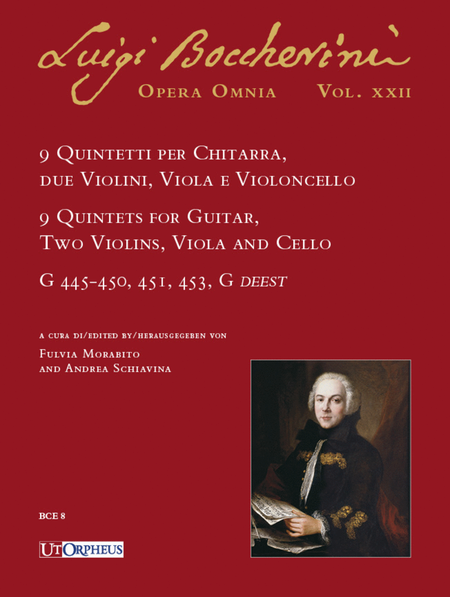
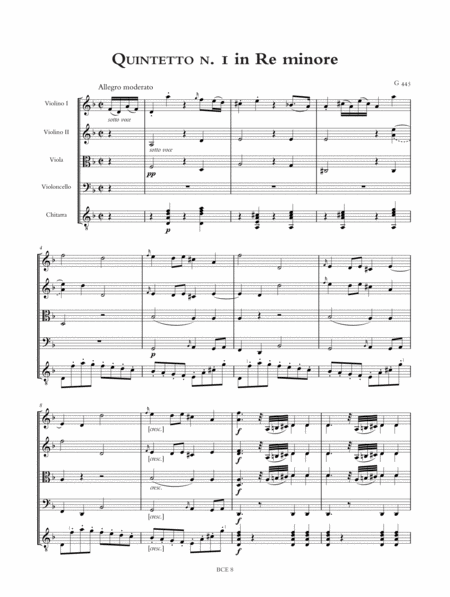
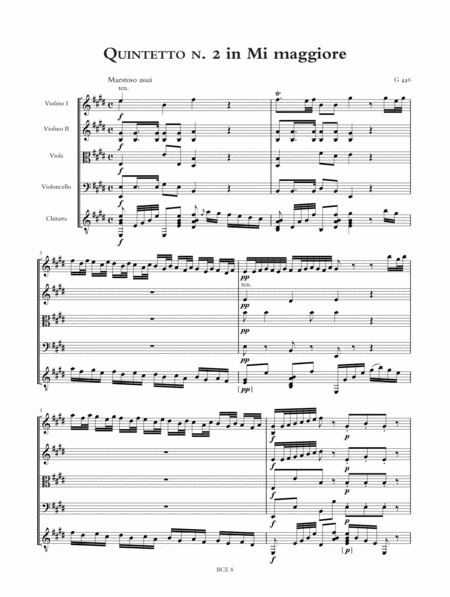
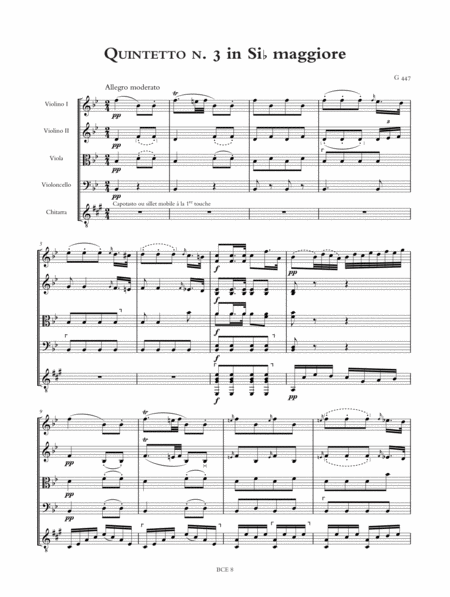
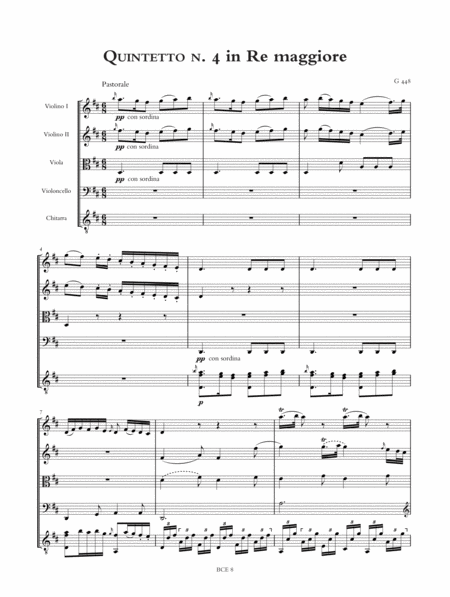
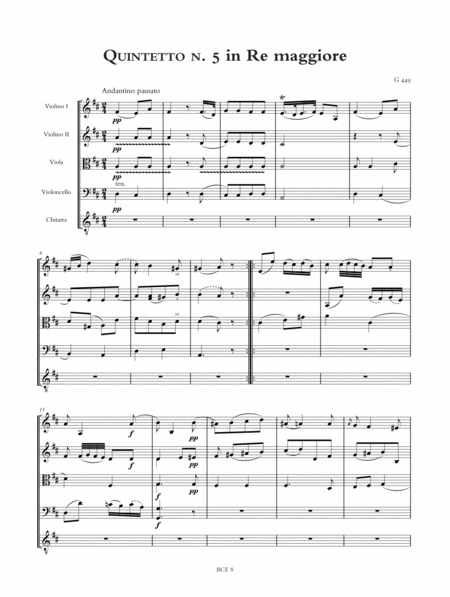
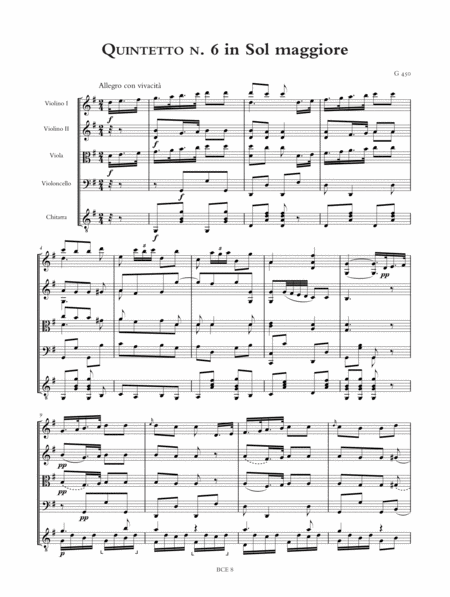
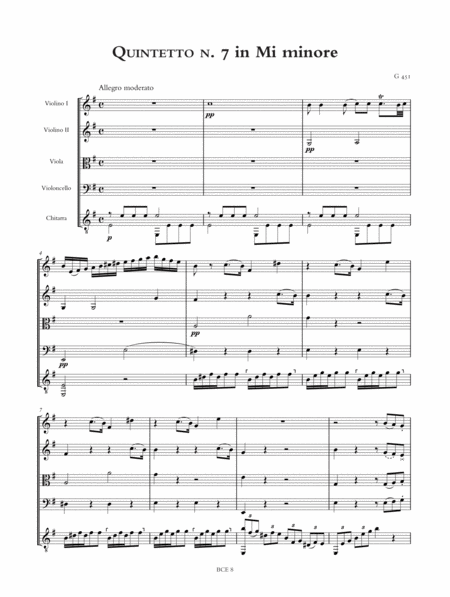
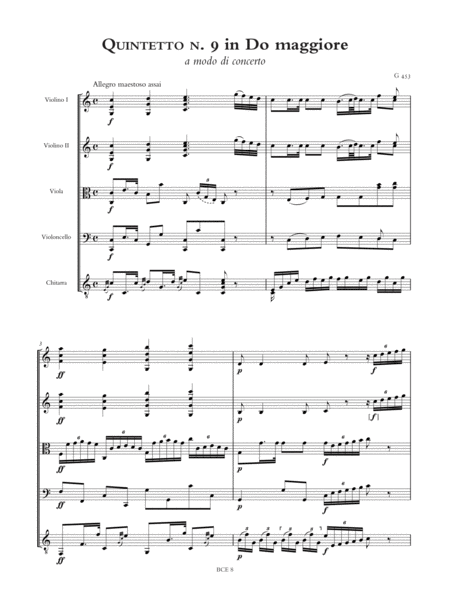
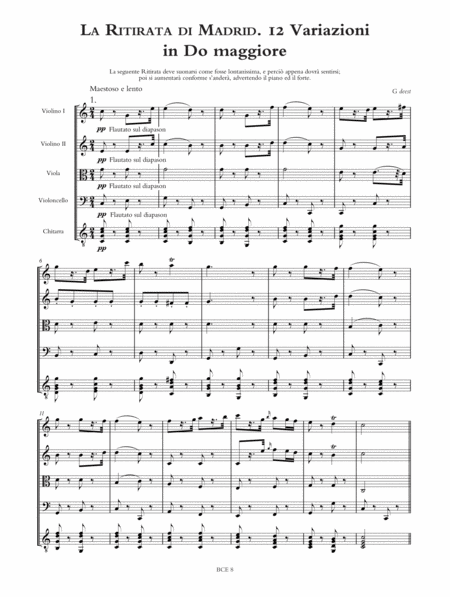
 Share
Share